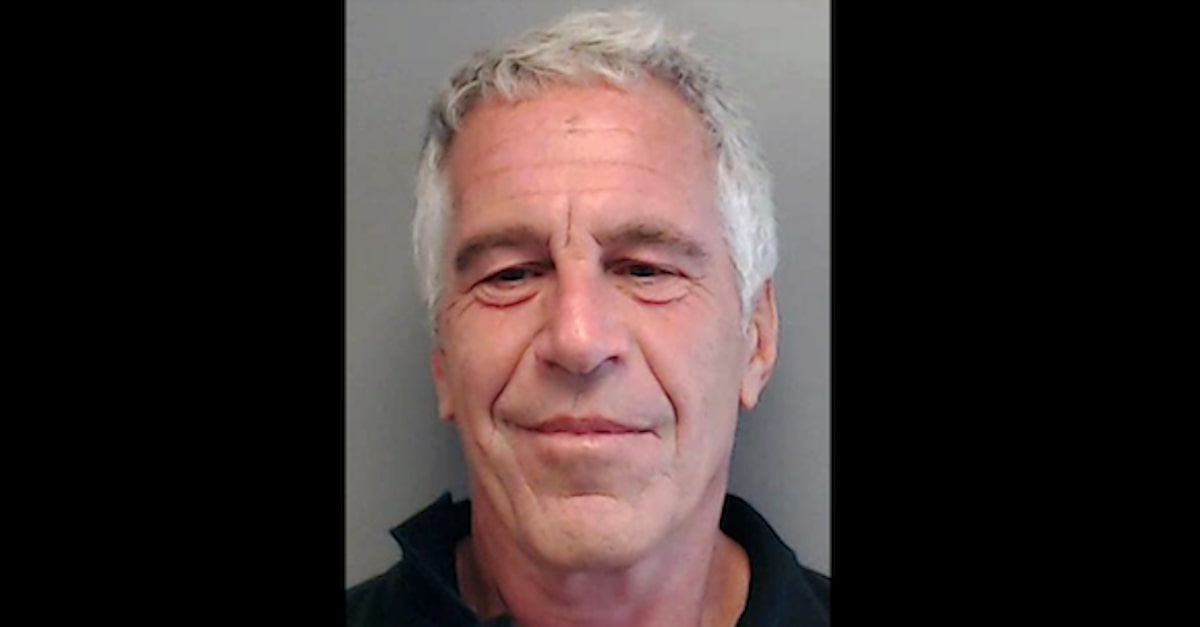
The judge overseeing a federal case related to deceased pedophile Jeffrey Epstein has issued a brief ruling determining the parameters for the eventual unsealing of remaining files.
U.S. District Judge Loretta Preska issued the following order on Thursday:
For the avoidance of doubt, counsel shall agree on the categories of documents (judicial documents, non-judicial documents, and something in between) within two weeks of September 4, 2019. No later than one week thereafter, the proponent of sealing shall submit papers no longer than 5 double-spaced pages, 12-point type, including footnotes, arguing for sealing; no later than one week thereafter, any opponents of sealing (including non-parties) may submit papers no longer than 5 double-spaced pages, 12-point type, including footnotes; and no later than one week thereafter, the proponent of sealing may reply in a letter no longer than 3 double-space pages, 12-point type, including footnotes.
What that means:
Stylized as Virginia Giuffre v Ghislaine Maxwell, the case itself was brought in 2015 by one of Epstein’s victims, Giuffre, against the woman, Maxwell, who allegedly acted as “Epstein’s procurer of underage girls.”
Attorneys for Maxwell fought the defamation lawsuit for years before ultimately settling the case. But the fight to release the records became a crucial matter of public interest after a federal court ordered the release of a massive cache of documents in the wake of Epstein’s arrest on sex trafficking charges by New York authorities in July.
Those documents–estimated to number many thousands of pages–reportedly contain lurid details about various world leaders and high-profile individuals who allegedly engaged in the systematic rape and molestation of young girls on Epstein’s private jet and island, the Lolita Express and Little St. James, respectively. Various claims of sexual abuse and coercion were made against those elites in the tranche of documents, but there were also denials from those same rich and powerful men.
What’s perhaps been surprising about the high-profile legal battle is how out in the open Maxwell’s attorneys and other advocates for the global upper-crust have been about the entire affair.
“There are literally hundreds of pages of investigative reports that mention hundreds of people,” said Maxwell’s attorney Jeffrey Pagliuca in Preska’s Manhattan courtroom on Wednesday.
The day before the hearing an anonymous third-party submitted a seven-page letter pleading for the names of Epstein’s associates, confederates and other hangers-on not to be released due to the reputational damage that would likely be sustained by individuals associated with the years-long alleged elite rape retreat.
“Unsealing references to non-parties would throw those non-parties into the middle of this frenzy, and unfairly do irreparable harm to their privacy and reputational interests,” attorneys Nicholas Lewin and Paul Krieger wrote for their unnamed client. “Indeed, a vast number of these articles have published unsubstantiated allegations as fact. The careless regurgitation of allegations made under the litigation privilege, and not elsewhere, has the potential to permanently and unjustifiably harm non-parties and their families.”
Preska’s Thursday ruling sets out four different and additional opportunities for interested parties to weigh in on the fate of those mentioned in the long-hidden tranche.
[image via via Florida Department of Law Enforcement via Getty Images]